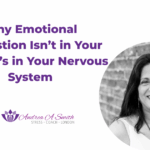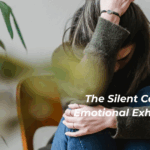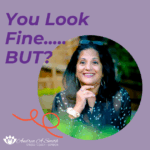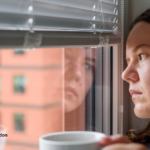The psychology of depression is related to the emotion of depression. So what does depression feel like? Therefore, depression can be considered a mental illness. Many people are suffering from depression. It is a persistent sadness and tiredness that lasts maybe more than two weeks. Depression may affect many parts of a person’s life. Different names for depression are “melancholic depression”, “sadness and woe”, “depression and anxiety”, “acute stress disorder”, “somatization and dysthymia”, and “manic depression”. A person with ‘acute stress’, ‘nervous breakdown or mental breakdown’ can be classified as having depression with altered thinking or behaviour. Depression is an existential crisis that affects the people suffering from it and the people around it, i.e. friends and family.
Depression is inactive, being alone, spending more time in the bathroom, eating a lot, not eating, etc., trying to avoid pain, and shutting out the voices. Awareness that this is a cry for help. Listening to messages in your head: ‘I hate my life,’ ‘I hate myself ‘I can’t go on feeling not good enough; it’s not right. ‘I don’t want to be this person, with feelings of worthlessness, distrust, and constantly empty.
Symptoms of Depression in men
Depression can affect both genders, although men are less likely to seek help and services. It is not unusual for men to talk to others or share their feelings, just like women. Men can also be physically absent from their families if they are depressed. Men are often depressed on and off, and some men who don’t seek help can be thought of as ‘burned out’. If depression is not adequately addressed, it can progress to a more severe level, as in major depression. Depression in men has symptoms similar to those that affect women. Although there are sometimes some differences, these symptoms are generally quite similar. Depression symptoms can include sadness and low energy, worthless or physical fatigue.
I Feel Worthless & what does depression feel like?
It is not normal to feel worthless, but it’s a sign that something isn’t right. I call it recurrent depression because some people have had this problem for many years. Symptoms of recurrent depression include feelings of despair, being overwhelmed, being paralyzed with fear, suicidal thoughts, losing interest, having no energy to accomplish anything, is not motivated, and lacking the ambition to do anything.
During the first three months of depression: extreme sadness, loss of interest, fatigue, and emotional fatigue can be one of the key symptoms you may have. The good news is that if you live with depression, it is not permanent. The depression cycle can be broken, and the symptoms will lessen over time. Some people in the beginning stages of depression experience a huge depression spike during a specific period. Some people feel this mood peek at a particular time in the year. Approximately 70% of all people with depression have experienced at least one episode of major depression.
Agitated Depression
When most people think of ‘mania’ — which can be caused by depression and mania — they think of frantic, excessive, manic behaviour, but agitation can also be caused by depression. It’s pretty standard, and it’s a significant symptom of depression, especially when the depression is prolonged, that you get irritable, agitated, and frustrated. However, it can be exacerbated by events like losing a loved one.
So what Does depression feel like? The Psychology of Depression. Symptoms of agitation are the feelings of ‘I’m angry, and I want to hurt somebody’—wanting to feel something besides the depressing thought, wanting to feel alive. Saying over and over to yourself, ‘I feel lonely, sad, and I want to scream’.
Depressed, depressed, depressed, depression, all those words are tied to anxious feelings. When you describe how someone feels, you can call that a depressed mood. Do you feel like your mood is all over the place, agitated? We say something like ‘my mood is agitated’ in the case of nervous depression. But what does this mean in everyday conversation? Are you agitated? Are you depressed? It’s kind of hard to tell. And we don’t call someone anxious – ‘agitated’ or ‘depressed’ unless we’re not sure.
What does depression feel like? The psychology of depression.
Depression is an emotion that reduces a person’s interest in, and a lack of enjoyment of, everyday activities. Depression is a widely misunderstood disease that can cause great concern among family, friends and even relatives. It is often associated with sadness and lethargy, but there are many different causes of depression, and there is no single cause. It is essential to understand that depression cannot be cured or reduced. People with depression can lead productive and fulfilling lives, but overcoming this challenge can be a long and challenging road. Depression often begins suddenly and can hit anyone anytime, in any country or age group.
Is Depression a Disability?
When we think of disabilities, we think of physical ones, such as a physical disability or a sensory disability. But emotional disabilities are just as actual. Emotional disabilities include the feeling that you don’t belong and that life isn’t worth living. You feel your own life has no value or meaning. This can result in suicidal thoughts or suicide attempts. Numerous things can cause emotional disabilities. They include mental health challenges such as depression, anxiety, panic attacks and post-traumatic stress disorder.
Conclusion
Depression is an illness we need to be concerned with, and we cannot put it on the back burner. The good news is that some medications can help you feel better, and some things you can do with family and friends can help, but mental illness is something that we can all struggle with.
So while getting help, try to be patient with yourself and take care of yourself. What does depression feel like?
Connect with me at hello@andreaasmith.com or read more about barriers to success to self-limiting beliefs, and let’s get you some support or help you need. This will answer an important question: ‘ how long after stopping antidepressants before I feel normal again’ and help to deal with overwhelming anxiety.










